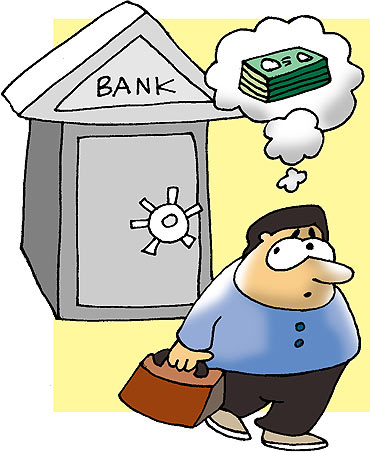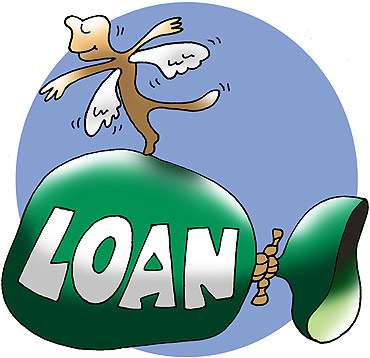The Income Tax Act, 1961 provides tax benefits for assessees that have home loans. Typically a home loan is repaid to the bank/lender in monthly installments.
The installment consists of two parts - interest and principal repayment. The bank gives a detailed worksheet of the loan calculation and of the bifurcation of the EMIs paid by the borrowers.
These monthly repayments are qualified for deductions from income tax.
...
Tax sops on home loans
Deduction under Section 80C of the Income Tax Act
The portion of the EMI paid towards repayment of principal amount of the loan can be deducted from income.
The borrower can get a tax deduction for a maximum amount of Rs 1,00,000 each year under this section irrespective of his tax bracket.
The Act requires the home loan to be towards a property for self occupation.
However, if the assessee's city of employment is different from the city where he has purchased a home, he is still eligible for this deduction.
So if Sunil works in Mumbai but has purchased a home in his hometown Nagpur, he can still claim a deduction under this section even if he is not actually staying in this home.
...
Tax treatment for home loans
Deduction under Section 24(b) of the Income Tax Act
The interest paid towards home loan is treated as an 'expense' under 'Income from house property' and is deductible under Section 24(b) from the total income of the assessee.
The maximum deduction permitted under this section is Rs 1,50,000 per annum.
In case of partial disbursement of loan
In cases where some part of the loan is disbursed by the bank during construction stage of the property, the tax treatment is slightly different.
This portion of the interest paid prior to completion of construction of property cannot be claimed as a deduction in the year in which it is paid.
However, upon completion of construction, the assessee can claim deduction for this interest under Section 24(b) in 5 equal installments, i.e., 1/5th for each of the five years after the end of construction period. Note that the upper limit on deduction each year remains Rs 1,50,000.
Assume Sunil purchased a home from Suraksha Developers in FY06.The property was still under construction and was completed only in FY09.
Some amount of loan was disbursed by the bank in FY05-06 and Sunil made interest payments of Rs1,00,000 between FY06 and FY08. Sunil can claim deduction of Rs 20,000 for 5 years starting from FY09.
...
Tax sops on home loans
If Sunil received the entire loan money in FY06, and started paying EMI immediately, he would lose on the principal repayment deduction under Section 80C for the 3 years until construction of the property ends.
This is because deduction under Section 80C can be availed only after getting possession of the property.
In case of more than one home loan
If Sunil works in Mumbai and has a purchased a home in Mumbai for which he has taken home loan. Will he still get benefit under the Act for this second home in Nagpur?
The answer is 'Yes'. Benefits under Section 80C and Section 24(b) can be taken for more than one home if all these homes satisfy the requirements of the Act.
The home in Mumbai satisfies the condition of self occupancy while the home in Nagpur comes within the exception of the self occupancy rule that the city of work is different.
Irrespective of the number of homes the maximum limit of Rs 1,00,000 for Section 80C and Rs 1,50,000 for Section 24(b) still apply.
Note that it does not matter if Sunil gives one home on rent. He will still be able to get the tax break.
...
Tax sops on home loans
What is the tax impact if Sunil has taken the home loan jointly with his father?
In this case both Sunil and his father can claim tax deduction on their return if the home too is jointly owned by them.
Tax benefit can be availed in the same proportion as the burden of EMI borne by each. If Sunil pays 80 per cent of the EMI and his father contributes towards the remaining 20 percent, the tax deduction will be available in the same proportion.
So if principal repaid during a year is Rs 100,000 then Sunil can claim Rs 80,000 under section 80C and his father can claim Rs 20,000 under the even section.
If Sunil's father does not co-own the home, then he will not get any tax deductions for EMIs paid on such loan.






article